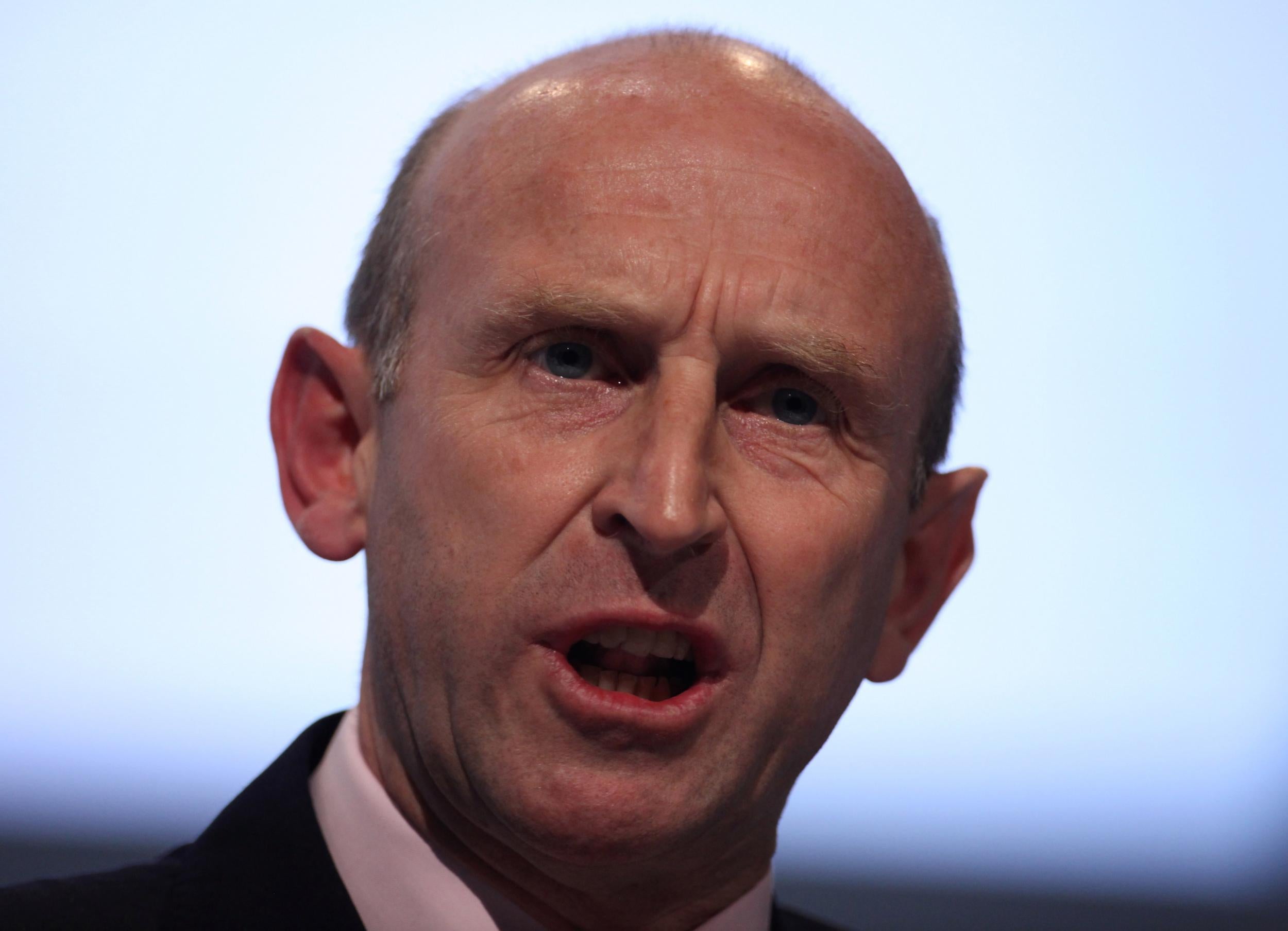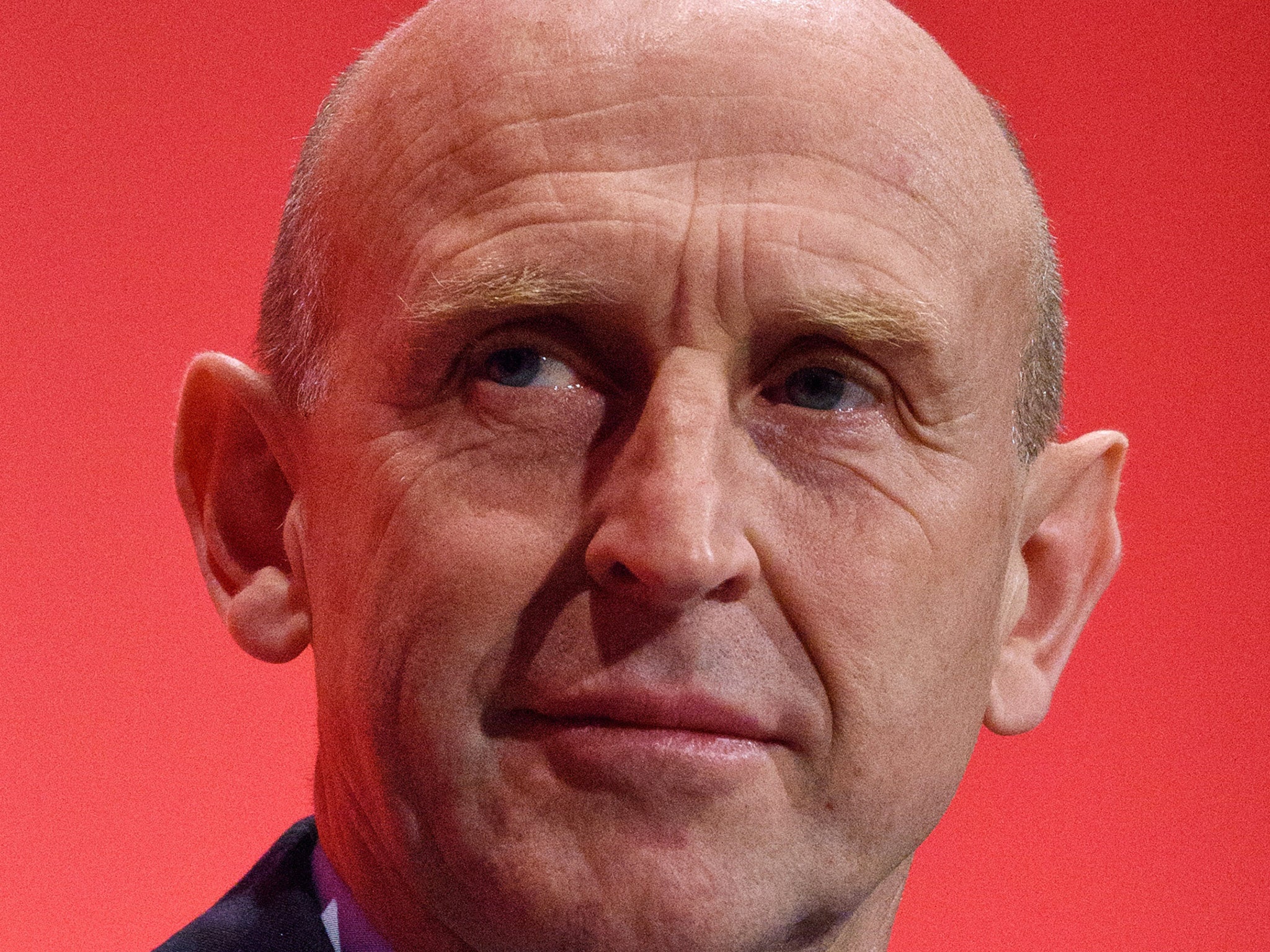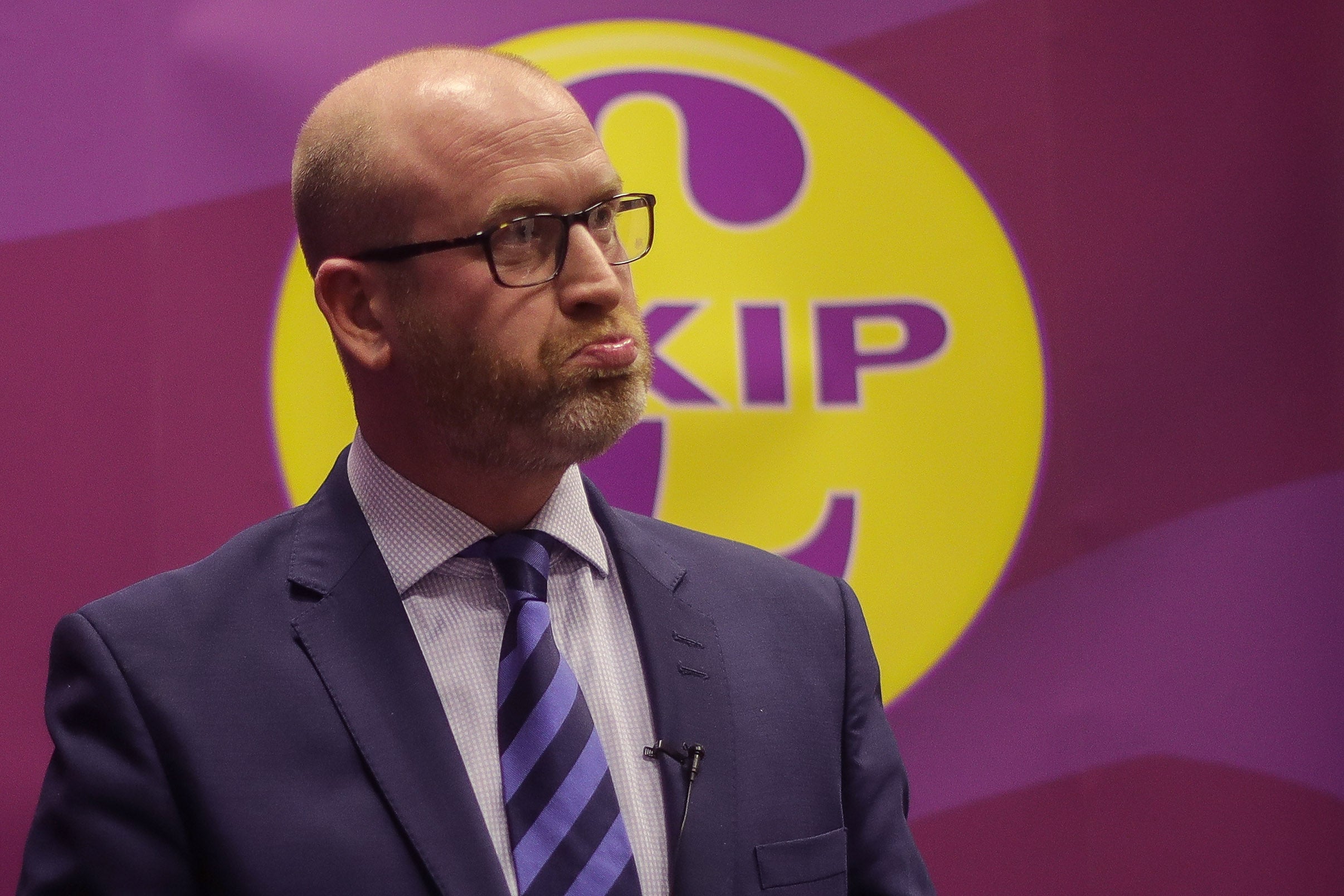Ukip threat to Labour heartlands is as dangerous as ever, shadow cabinet member warns
Exclusive: John Healey said the by-election win over Ukip in Stoke has not changed challenges facing his party

Your support helps us to tell the story
From reproductive rights to climate change to Big Tech, The Independent is on the ground when the story is developing. Whether it's investigating the financials of Elon Musk's pro-Trump PAC or producing our latest documentary, 'The A Word', which shines a light on the American women fighting for reproductive rights, we know how important it is to parse out the facts from the messaging.
At such a critical moment in US history, we need reporters on the ground. Your donation allows us to keep sending journalists to speak to both sides of the story.
The Independent is trusted by Americans across the entire political spectrum. And unlike many other quality news outlets, we choose not to lock Americans out of our reporting and analysis with paywalls. We believe quality journalism should be available to everyone, paid for by those who can afford it.
Your support makes all the difference.The Ukip threat to Labour’s heartlands has not gone away in the wake of the eurosceptic party’s defeat in Stoke, a shadow cabinet member has warned.
John Healey said the by-election result which humbled Ukip leader Paul Nuttall, did not alter Labour’s precarious position in “large swathes of midlands and northern England and Wales”.
The shadow Secretary of State for Housing said that despite Ukip’s apparently waning electoral fortunes, the “structural, economic and cultural” causes of the party’s rise, remain in small cities and towns of post-industrial England, and they are not going away.
The intervention comes after Ukip failed dismally to make significant progress at the Stoke-On-Trent Central by-election and saw its vote share more than halved in Copeland – two northern seats of the kind Mr Nuttall had hoped to build support in.
The Ukip leader pledged to be a “patriotic voice” for the working class and had wanted to exploit anxieties about immigration and national identity, but suffered from a spate of personally damaging stories during the campaign.
One of the nation’s leading polling experts, Professor John Curtice, said the morning after the by-election that it was now clear the Ukip threat to Labour’s northern seats had been overplayed by the party. Shadow Chancellor John McDonnell meanwhile said that the basis on which Ukip was hoping to take the North had been stopped in its tracks in Stoke.
But Mr Healey, who said his local town of Rotherham was practically a “shorthand” for such areas of the country, struck a more cautious tone.
“The political threat of Ukip doesn’t rest upon the credibility of its party leaders,” he told The Independent on the day of the Stoke by-election, ahead of the results.
“It draws it strength from the roots of dissatisfaction that people feel with what’s happening in their everyday lives, what’s happening in their town, and what they see as the yawning gap between the pressures they face and the preoccupations of the establishment and the political world.
“The structural, economic, and cultural causes of Ukip’s rise are still there, so therefore in my view the risk is still there, whatever the result in Stoke.”
In 2015 the eurosceptic party came a strong second in Mr Healey’s Wentworth and Dearne constituency, which straddles the South Yorkshire towns of Rotherham and Barnsley. Under Nigel Farage’s leadership Ukip surged from fourth place to second to capture a full quarter of the vote.
But Mr Healey said former mining and manufacturing areas like his own too often no longer knew what their contribution to the rest of the country was.
“I think for many people in many areas it’s a sense that they’re left behind. In an area like Rotherham we knew what we were for thirty years ago – we were a mining area, a steelmaking area, a heavy engineering area. We knew not just what we did but the contribution we made to the rest of the country.

“That’s not true now – it’s a former mining area and not quite a former steel area, and the sense of being left behind is very powerful and the sense of politicians not having answer that will make a difference to the lives of many people in Rotherham and the people they know is very powerful.”
He warned that many of the kind of problems in his local area were writ large across many small cities and towns in the north of England.
“I use Rotherham as a shorthand for large swathes of midlands and northern England and parts of Wales and I use it as a shorthand for the towns of Britain,” he said.
“The towns and small cities of Britain and that’s your former industrial towns, it’s some of your market towns and certainly the coastal towns.”

Mr Healey said his party had “ducked” debates about the fears people in his part of the country felt and that the way back to gaining support was to advocate tougher controls on immigration, an industrial policy that created good jobs, and a regeneration plan for towns and cities that felt they had “fallen behind”.
Professor Curtice, the mastermind of the successful 2015 election exit poll, was one of those high-profile voices to downplay the Ukip threat to Labour. Writing in The Guardian he said that Ukip shared a “misapprehension” with Labour that large numbers of its supporters would ultimately be willing to vote for Ukip.
“Labour seems to have decided in recent weeks that its first priority is to stave off the threat from Ukip to its traditional working-class vote, much of which supposedly voted to leave in the EU referendum,” he wrote.
“But in so doing it seems to have forgotten (or not realised) that most of those who voted Labour in 2015 – including those living in Labour seats in the North and the Midlands – backed remain. The party is thus at greater risk of losing votes to the pro-remain Liberal Democrats than to pro-Brexit Ukip."
Join our commenting forum
Join thought-provoking conversations, follow other Independent readers and see their replies
Comments